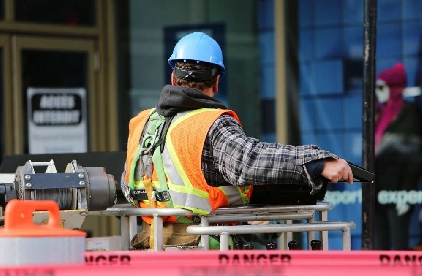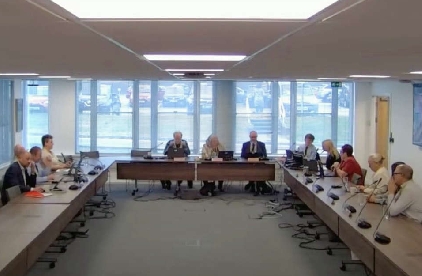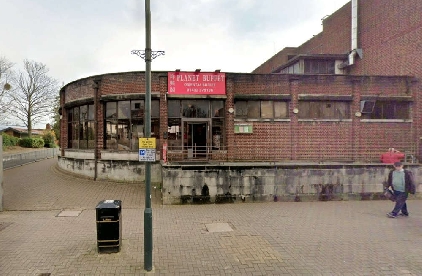
A Hereford resident who is facing a £38,000 tax bill says he has not been able to sleep properly for the last two years.
Ross-on-Wye born Stephen Price, 67, has found himself embroiled in the battle is over the 2019 Loan Charge, the HMRC measure aimed at clawing back unpaid taxes from people who they say used so-called disguised remuneration schemes since 1999.
HMRC estimates around 50,000 people were involved in the schemes, in which contractors were paid through a loan from an offshore trust.
The agency employing them would divert most of their pay to an offshore trust which would pay them through a loan which they wouldn’t have to pay back – the tax payable on this would only be around 1 to 2%.
Mr Price’s troubles stem from a period 16 years ago when he worked as an IT contractor for JP Morgan Chase.
His position was made redundant at the investment bank and he was subsequently taken on as a contractor in 2003.
“I was made redundant and was then offered a contract working with them,” he said.
“A friend pointed out one the schemes in the Isle of Man so I looked into it and checked with a lawyer who told me everything was legal.”
Mr Price says he was told it was all completely above board and that HMRC itself was also using the scheme with some of its contractors.
He sent all the required paperwork off to the company in the Isle of Man and they dealt with his tax affairs for him.
“JP Morgan sent the hours I had worked each month to my agent and the company in the Isle of Man,” he said.
“And I would receive two payments. They were doing my tax returns and sending them to HMRC.”
Mr Price’s contract finished in 2006 and he went on to work elsewhere – it was not until early 2017 that he received letters from HMRC.
He was sent an accelerated payment notice requesting him to pay around £38,000 for the time he worked as a contractor at JP Morgan.
“I didn’t know what to do,” he said.
“It had to be paid by March 2017. So, I got in touch with the company in the Isle of Man who told me to send them all the letters and they told me they would look into to it for me.”
Mr Price says he in a state of limbo and has not heard anything from HMRC since the summer of 2017.
“I haven’t slept for two years. I don’t know what is going to happen or what the next letter from HMRC will say.
“It’s the not knowing that is the worst thing about it.”
Mr Price said he believes it is not right for the tax to be applied to people retrospectively.
“Some people are still being forced into these schemes. They either take it or don’t get the work.”
More than 200 MPs have called on the government to stop the controversial tax policy and introduce an independent review of the policy.
And campaigners from the Loan Charge Action Group have heavily criticised treasury minister Jesse Norman for his handling of the issue and have called for him to resign.
“He has been sent, personally, 820 impact statements which show the devastation the Loan Charge is having and he also knows that there have been seven suicides reported to the All Party Parliamentary Loan Charge Group,” spokesperson Steve Packham said.
“He is refusing to stop HMRC continuing to pursue vulnerable people, which is deeply irresponsible.”
Mr Norman defended the Loan Charge and says it is a means to tackle a serious form of tax avoidance.
“Typically these schemes work by paying people a smaller amount via PAYE under the personal allowance threshold, with a larger component coming in the form of a loan through an offshore trust, which is rarely if ever repaid,” he said.
“The individual ends up qualifying for pension benefits, but paying virtually no tax on tens or even hundreds of thousands of pounds of income.
“These schemes are used by a tiny percentage of the population, but there is a very substantial amount of tax at stake, some £3 billion.
“Before the summer I wrote to MPs across the House to clarify and reassure them about the facts, and most recently I and my colleagues have appointed a widely respected independent expert, Sir Amyas Morse, to review the policy in order to address any public concerns.
“Sir Amyas is due to conclude in mid-November, and I look forward to reading his report.”
HMRC did not respond to requests for comment.

 Continued disruption for rail services between Hereford and Shrewsbury
Continued disruption for rail services between Hereford and Shrewsbury
 Prohibition notices for unsafe work in county
Prohibition notices for unsafe work in county
 Plan to restrict public questions to councillors
Plan to restrict public questions to councillors
 Anger at £25K study into Ledbury's tourism
Anger at £25K study into Ledbury's tourism
 Leominster shop closed down by trading standards
Leominster shop closed down by trading standards
 Leominster woman charged with animal cruelty
Leominster woman charged with animal cruelty
 Why moves to withdraw Hereford restaurant licence postponed
Why moves to withdraw Hereford restaurant licence postponed

